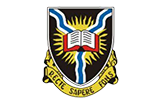History
The Department of Communication and Language Arts originally began in 1964/65 as a service centre, a Reading Centre, to impart study skills to new students. It transformed into Department of Language Arts in 1975, and later Department of Communication and Language Arts. The Reading Centre, which gave birth to the new department, was first established during the 1964/65 session, with the following objectives:
- To advise first-year students on methods of study; to improve their speed of English reading and comprehension; and to continue assistance for students (in other years) who feel the need for special help in this field.
- To carry out research into ways of improving the teaching of English reading to Nigerian students.
- To train Nigerian personnel as Reading specialists.
- To act as a resource and guidance centre for institutions concerned with improving the teaching of English reading in schools.
During its first five years of existence, the centre's resources were devoted to the achievement of the first and the second sets of objectives. In subsequent years, the centre's objectives were broadened and its resources expanded, not only to meet the requirements of developmental, remedial and rapid reading, but also to take care of related language skills (listening comprehension, speech and writing) and communication arts.
In the 1987/88 session, the department's name changed to Department of Communication and Language Arts in order to reflect more properly, the scope of its work and provide training in communication skills for the individual's social, professional and intellectual growth. The conversion of the Centre from a teaching support unit to a degree-awarding department after ten years of existence was a very significant change in the development and study of Language Arts as an academic discipline in this University. In addition, its subsequent broadening to encompass communication arts has made it even more relevant to the country's communication needs, making it a very popular course of study.
The Department has a full accreditation status with the National University Commission valid from 2014 to 2019. We have 201 undergraduate students; about 120 Master’s degree students, and about 40 PhD students. As at now, there are eleven fulltime academic staff members.
Vision
Our vision is:
To be a Centre of Excellence for training in communication skills development.
Mission
Our Missionis to:
- Produce students with requisite knowledge and skills for the communication industry
- Train students who adhereto high ethical and professional standards
- Foster entrepreneurial spirit among our society
- Provide communication consultancy servicesas and when required.
- Be a socially engagedtraining centre with high public impact.
Our Core Values
Our core values in the department are the following:
- Integrity;
- High ethical and professional standards;
- Excellence in teaching and research;
- Respect for the worth of individual student and staff; and
- Social responsibility to our immediate community, the nation and the world at large.
